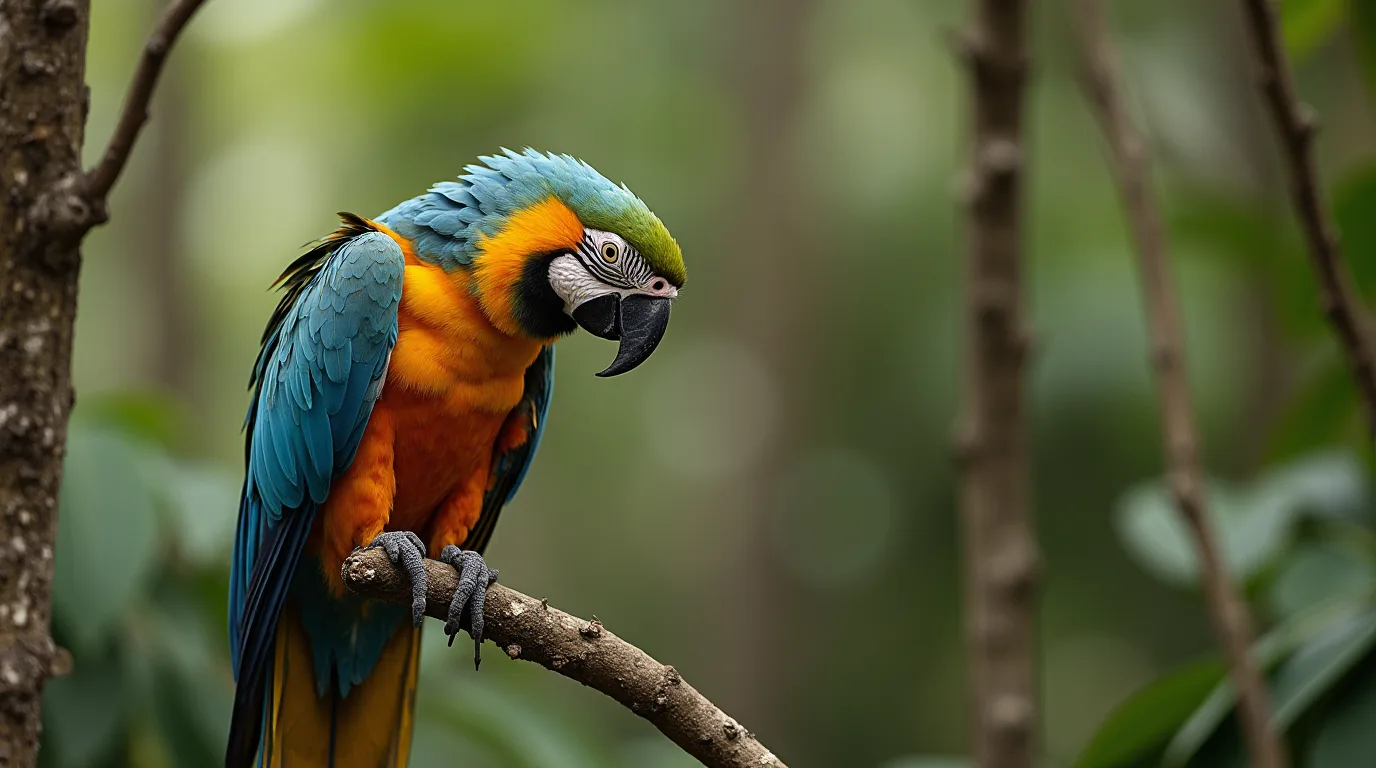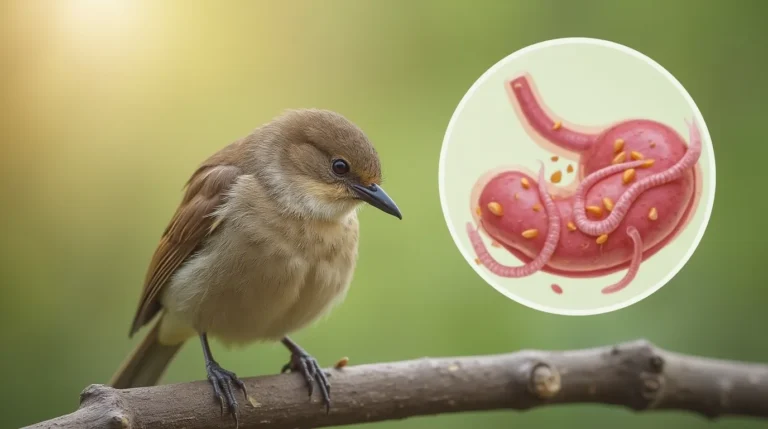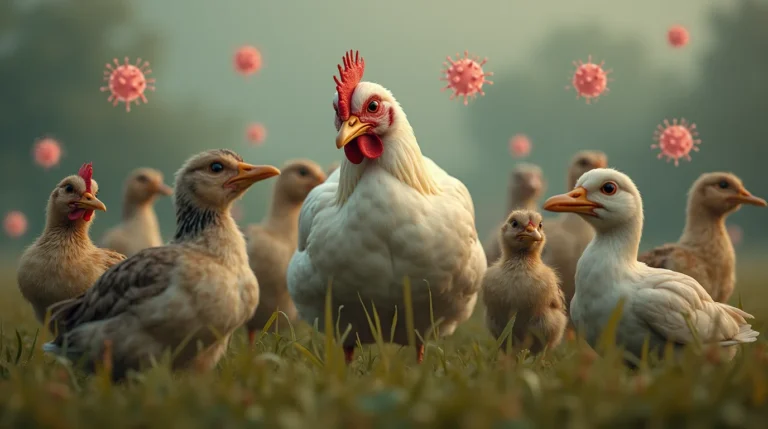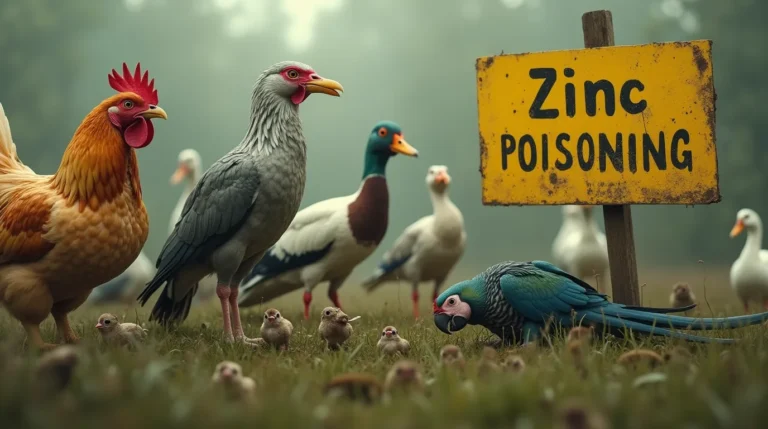Protect your avian companions: Learn the critical signs of Newcastle Disease in birds, top prevention strategies, and expert care tips to keep your feathered friends healthy.

Table of Contents
Newcastle Disease in Birds is a highly contagious viral infection that poses a significant threat to bird populations worldwide. Whether you’re a backyard poultry keeper, avian enthusiast, or professional bird caretaker, understanding this devastating disease is crucial for protecting your feathered friends. In this comprehensive guide, we’ll explore the intricate details of Newcastle Disease, its transmission, symptoms, and most effective prevention strategies.
What is Newcastle Disease?
Newcastle Disease is a severe viral infection caused by the avian paramyxovirus type 1 (APMV-1), which can affect a wide range of bird species. From domestic chickens to wild birds, this disease can cause devastating outbreaks with potentially fatal consequences. The virus belongs to the Paramyxoviridae family and can manifest in various forms, from mild respiratory issues to severe neurological complications.
Disease Classification
Newcastle Disease has three primary pathotype classifications based on viral severity:
- Mild (Lentogenic): Minimal symptoms, often goes unnoticed
- Moderate (Mesogenic): Moderate respiratory and neurological signs
- Severe (Velogenic): Extremely high mortality rates, rapid spread
5 Critical Signs of Newcastle Disease Infection
1. Respiratory Distress
- Labored breathing
- Gasping and coughing
- Nasal discharge
- Swollen sinuses
2. Neurological Symptoms
- Head tremors
- Twisted neck
- Paralysis
- Inability to stand or walk correctly
- Circling behavior
3. Digestive System Complications
- Reduced feed intake
- Watery droppings
- Diarrhea
- Significant weight loss
4. Egg Production Disruption
- Dramatic decrease in egg production
- Soft-shelled or misshaped eggs
- Complete cessation of laying
5. General Weakness and Behavioral Changes
- Lethargy
- Ruffled feathers
- Reduced social interaction
- Increased vulnerability to secondary infections
Transmission Mechanisms
Newcastle Disease spreads through multiple pathways:
- Direct contact with infected birds
- Contaminated feed and water
- Respiratory secretions
- Fecal matter
- Wild bird interactions
- Contaminated equipment and clothing
Prevention Strategies
Biosecurity Measures
- Strict Quarantine Protocols
- Isolate new birds for 30 days
- Limit visitor access to bird areas
- Implement strict clothing and footwear changes
- Vaccination Programs
- Regular vaccination of entire flock
- Follow recommended vaccination schedules
- Use approved Newcastle Disease vaccines
- Hygiene and Sanitation
- Regular coop cleaning
- Disinfect equipment
- Control wild bird access
- Proper waste management
- Nutritional Support
- Balanced diet
- Immune-boosting supplements
- Clean, fresh water
- Monitoring and Early Detection
- Regular health checks
- Quick isolation of symptomatic birds
- Professional veterinary consultations
Recommended Pet Products on Amazon
- Poultry Vaccination Kit
- Advanced Disinfectant Spray
- Bird Health Supplement
- Professional Bird Handling Gloves
Newcastle Disease in Birds (FAQ)
Q1: Can humans contract Newcastle Disease? A: While rare, humans can develop mild flu-like symptoms, typically with minimal health risks.
Q2: How quickly does Newcastle Disease spread? A: The virus can spread rapidly, potentially infecting an entire flock within days.
Q3: Is there a cure for Newcastle Disease? A: There’s no specific cure. Prevention and supportive care are the primary management strategies.
Q4: How long can the virus survive in the environment? A: Newcastle Disease virus can survive up to several weeks in contaminated environments.
Q5: Are all bird species equally susceptible? A: Susceptibility varies, with domestic poultry being most vulnerable.
Conclusion
Understanding Newcastle Disease is paramount for bird owners and professionals. By implementing rigorous prevention strategies, maintaining strict biosecurity, and staying informed, you can significantly reduce the risk of this devastating disease.
Call to Action: Share your experiences with Newcastle Disease or leave a comment below. Together, we can protect our feathered companions!
Explore More at BlithePet
For expert pet care recommendations and in-depth guides, visit BlithePet – your trusted resource for comprehensive animal health information.





